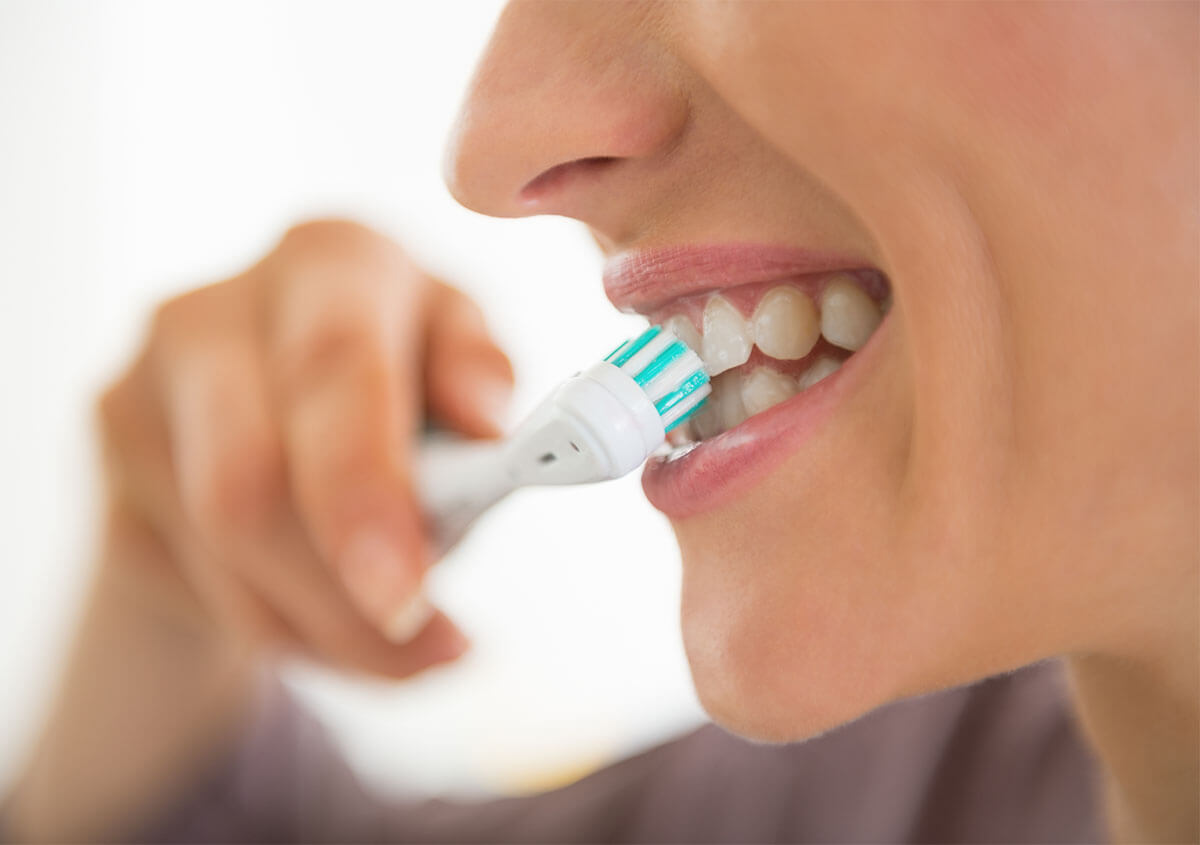Adult Cleaning (Prophy)
Regular Dental Cleaning
Most people have heard of gingivitis. But you’ve probably never heard the word prophy. So what is it? Prophy is short for prophylactic teeth cleaning, the most vital procedure in periodontal care. Most patients who require prophy are diagnosed by their dentist with an inflammation of their gums, commonly known as gingivitis.
Someone with gingivitis will normally have the following symptoms: swollen, shiny gums, general soreness of the mouth including bright red inflamed gums. Gums may also be itchy and bleed easily when brushing or flossing. Bad breath or halitosis is also very common in a person with gingivitis.
Simply put, it starts with poor brushing. The main cause of gingivitis is plaque and tartar build up. First, comes the plaque. Plaque is the yellow film on your teeth caused by food and bacteria in your mouth. Next, comes the tartar. When plaque builds up mixes with the saliva in your mouth it hardens over time and turns into tartar. Tarter, usually a result of poor brushing, ultimately leads to gingivitis. It’s a vicious cycle.
Gingivitis can also be a warning sign for a more severe gum disease called periodontal disease. This disease is when gingivitis is left untreated and can lead to bone loss or even tooth loss.
But don’t despair! The good news is that gingivitis can be treated with prophy. And with routine oral hygiene at home, such as proper and regular brushing and flossing. You can prevent gingivitis from reoccurring.


Dental Cleaning Procedure (Prophy)
So how exactly does prophy work? Prophy is a multi-step process that is normally done in one office visit:
Step one. First, a general cleaning is performed. This is either done manually or with an ultrasonic instrument called a Cavitron, or sometimes a combination of the two. Both techniques loosen and remove plaque and tartar build up.
Step two. Following the initial cleaning, a rotary machine that looks much like a toothbrush with toothpaste on it is used. This removes any remaining plaque around or under the gums. It also helps to polish the outer surface of your teeth which helps reduce future plaque buildup.
The final step is to floss to remove any and all remaining plaque between the teeth.


Deep Cleaning (Scaling and Root Planing)
Scaling And Root Planing (Deep Cleaning)

Most people have heard of gingivitis. But you’ve probably never heard the word prophy. So what is it? Prophy is short for prophylactic teeth cleaning, the most vital procedure in periodontal care. Most patients who require prophy are diagnosed by their dentist with an inflammation of their gums, commonly known as gingivitis.
Someone with gingivitis will normally have the following symptoms: swollen, shiny gums, general soreness of the mouth including bright red inflamed gums. Gums may also be itchy and bleed easily when brushing or flossing. Bad breath or halitosis is also very common in a person with gingivitis.
Simply put, it starts with poor brushing. The main cause of gingivitis is plaque and tartar build up. First, comes the plaque. Plaque is the yellow film on your teeth caused by food and bacteria in your mouth. Next, comes the tartar. When plaque builds up mixes with the saliva in your mouth it hardens over time and turns into tartar. Tarter, usually a result of poor brushing, ultimately leads to gingivitis. It’s a vicious cycle.
Gingivitis can also be a warning sign for a more severe gum disease called periodontal disease. This disease is when gingivitis is left untreated and can lead to bone loss or even tooth loss.
But don’t despair! The good news is that gingivitis can be treated with prophy. And with routine oral hygiene at home, such as proper and regular brushing and flossing. You can prevent gingivitis from reoccurring.
Scaling and root planning are frequently referred to as ‘deep cleaning’. Deep cleaning is the treatment of choice for an infectious disease called periodontal disease.
What Is Periodontal Disease?
Periodontal disease mainly starts with the formation of plaque around the teeth. Plaque is the yellow film on your teeth caused by food and bacteria in your mouth. When plaque build-up mixes with the saliva, it hardens over time and turns into tartar. Tarter containing bacteria will irritate the gums around the teeth by attaching to the outer surface of the teeth and roots and releases poisonous toxins. These toxins cause an infection and an inflammation of the gums. Worse, if left untreated they can ultimately cause bone loss and eventually tooth loss. Keep in mind the lost bone will never grow back.
Fortunately, scaling and root planing can help. Scaling and root planing are a procedure that treats the infected area by meticulously cleaning the tartar and bacteria from the teeth and their roots.
Gum Disease

The 3 stages of gum disease are gingivitis, periodontitis, and advanced periodontitis. Gingivitis is caused by toxins irritating the gum line as a result of plaque buildup. Signs and symptoms of gingivitis includes swelling, sensitivity, and bleeding of the gums during brushing and flossing. Gingivitis can be easily reversed through professional care and good home oral hygiene. Periodontitis is categorized by irreversible bone loss that results from untreated gingivitis. The gums may begin to form a pocket below the gum line which traps food and plaque. Dental treatment and home care can help prevent from further damage, but at this stage, the results are not reversible. Advanced periodontitis is when the fibers and bones supporting the teeth destroyed. This may cause teeth to shift or loosen. Teeth may have to be removed depending on how advanced the disease has become and if treatments are not effective. You can begin by preventing gum disease with good oral health. Pick up a brochure or ask your dentist today.
Detecting Periodontal Disease
One way to diagnose periodontal disease is by taking dental x-rays. X-ray images assist in making the tarter build up under the gums more visible. X-rays also show the current condition of the bone.
The second method of diagnosis is a clinical examination, in which your Chino Hills dentist can visually check the amount of plaque. And tartar build up as well as the color and shape of the gums as indicators for gum disease.
The third and last method of diagnosis is by measuring the pockets that form between the gums and teeth. Destructive bacteria contained in plaque and tarter cause the formation of these pockets. Any pocket that measures greater than 3mm is probably an indication of periodontal disease.
Scaling And Root Planing Treatment (Periodontal Care)
Deep cleaning or scaling and root planing (periodontal care) are normally performed by your Sunny Family Dental Chino Chino Hills dentist or dental hygienist in a couple of visits. The exact number of visits, however, depends on your dentist and the amount of tartar build up. Often your dentist will choose to administer a local anesthetic to make the procedure virtually painless. The goal of the procedure is to eliminate the infection by removing the bacteria-containing plaque and tarter that has attached to your teeth and their roots under the gum.
The deep cleaning is either done manually or with an ultrasonic instrument called a cavitron, or sometimes a combination of the two. Both techniques loosen and remove plaque and tarter build up.
In addition, antibacterial irrigants or local antibiotics such as Arestin may be used in conjunction with the cleaning procedure to further reduce the number of bacteria around the gums.
The third and last method of diagnosis is by measuring the pockets that form between the gums and teeth. Destructive bacteria contained in plaque and tarter cause the formation of these pockets. Any pocket that measures greater than 3mm is probably an indication of periodontal disease.
Can You Get A Regular Cleaning Instead?
The answer is NO.
As the name deep cleaning implies, the main difference is that scaling and root planning goes below the gum to remove plaque or tartar build up from the tooth’s root where the bone is affected by the infection. Whereas, regular cleaning only removes the plaque or tartar above the gum.
The third and last method of diagnosis is by measuring the pockets that form between the gums and teeth. Destructive bacteria contained in plaque and tarter cause the formation of these pockets. Any pocket that measures greater than 3mm is probably an indication of periodontal disease.
Periodontal Follow-up Care
Periodontal disease cannot currently be cured; it can only be controlled by proper periodontal care, so it is important to follow your dentist’s recommendations for follow-up maintenance and treatment. In addition to routine checkups, performing proper dental hygiene at home is of course also important to help prevent the reoccurrence of this destructive disease.
The third and last method of diagnosis is by measuring the pockets that form between the gums and teeth. Destructive bacteria contained in plaque and tarter cause the formation of these pockets. Any pocket that measures greater than 3mm is probably an indication of periodontal disease.
Periodontal Maintenance
Periodontal maintenance (PM) is essential to the ongoing periodontal stability of patients. Optimal periodontal health requires regular follow-up care. Your periodontist may advise the frequency of your follow-up care based on the severity of your gum problem. Maintenance care helps eliminate the bacterial plaque on a regular basis. Facilitate healing and prevent further destruction of bone.


Products
Electric Toothbrush (Oral-B)

Waterpik or Water Flosser

Services
- LASER curettage – an effective way to remove bacteria and treat periodontal diseases
- subgingival irrigation – to safely and effectively flush out bacteria and other toxins trapped under the gumline, to prevent gum disease.
- Arestin – a prescription medicine to treat Periodontitis
- Chlorhexidine chip – to effectively treat adult periodontitis – scaling and root planning
For more information on any procedure or to set up an appointment, call us at (909) 679-3447 or Book an appointment.






